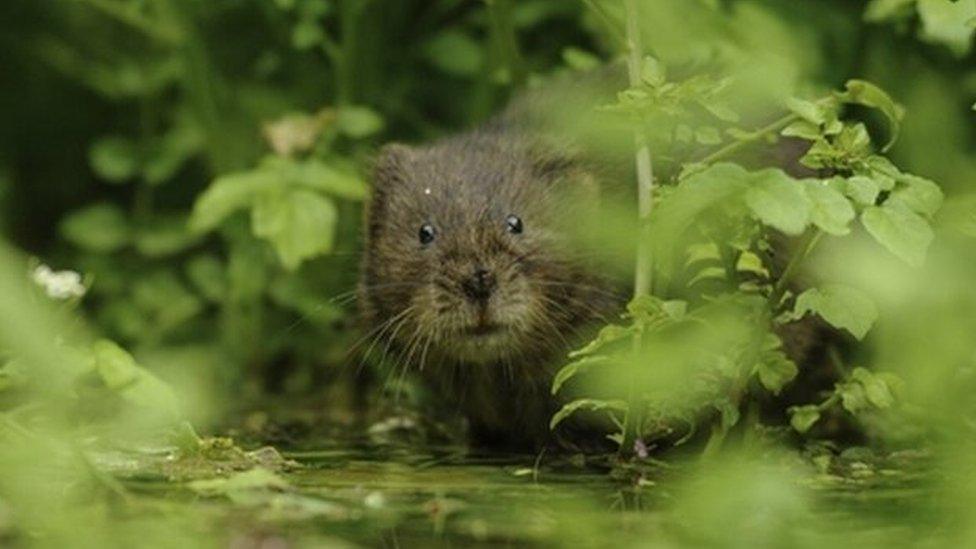Water buffalo herd introduced to Hertfordshire wetland reserve
- Published
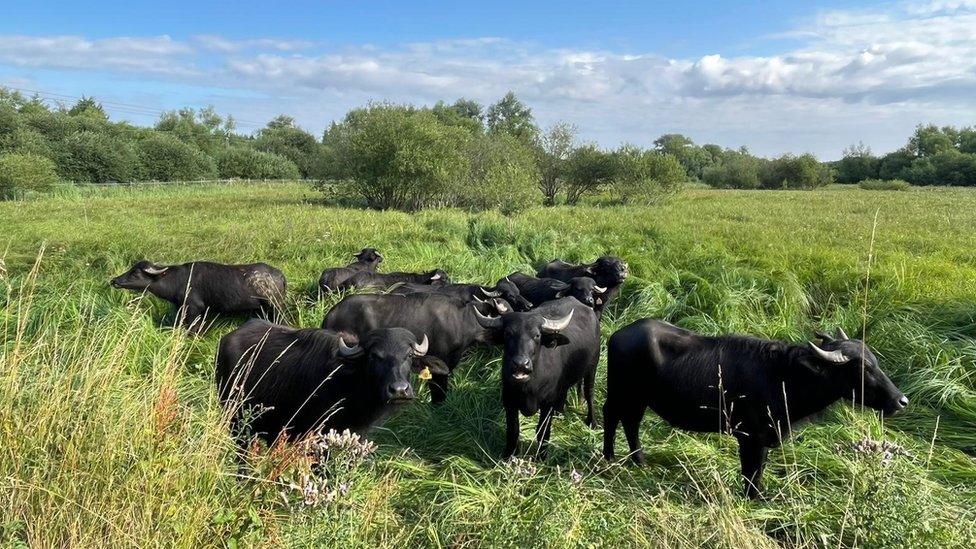
The species are said to be hardier and more tolerant of water-logged conditions than domestic cattle
A herd of water buffalo has been introduced to a rare wetland in Hertfordshire to improve its habitat.
Herts and Middlesex Wildlife Trust, external said the animals were considered to be the best livestock option to graze the Thorley Wash Nature Reserve.
The 13-hectare site, to the south of Bishop's Stortford, is a designated Site of Special Scientific Interest (SSSI).
Traffic stopped and heads turned when the herd arrived, the trust said.
Steven Werrell, senior projects officer at the trust, said: "We hope that over the coming months we will start to see the impact that they have on site, grazing through the wet grassland habitat reducing the dominance of coarser and scrubby species such as the dominant sedges and willows.
"It will allow space for finer wildflowers and grasses such as ragged robin and fen bedstraw".
The trust said that if the water buffalo had not been introduced, it would have required heavy machinery to keep the ditches clear.
The water buffalo will spend the summer at Thorley Wash, near the village of Spellbrook, having travelled from Sunnymead Farm in Essex.
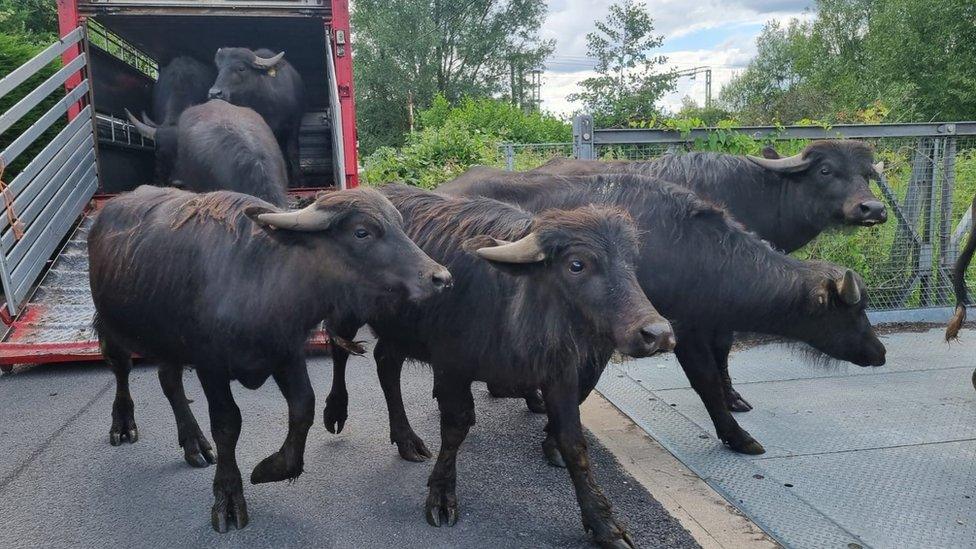
Traffic stopped and heads turned when the herd arrived, Herts and Middlesex Wildlife Trust said
The species, which originates from Asia, is said to be hardier and more tolerant of water-logged conditions than domestic cattle, and are better suited to the conditions.
"The Water Buffalo will be at home in the ditches and wet habitats at Thorley Wash and will continuously graze new growth and prevent the ditches there from becoming choked," said Emily Dutton, grazier at Sunnymead Farm.
"It's great to think that the herd will be helping wildlife as they too enjoy optimum living and grazing conditions on the reserve."
Thorley Wash Nature Reserve, formerly known as Thorley Flood Pound, is said to be a great example of a fen habitat.
According to the National Lottery Heritage Fund, 99% of fen habitat in the UK has been lost , externalthrough agricultural drainage works.

Follow East of England news on Facebook, external, Instagram, external and Twitter, external. Got a story? Email eastofenglandnews@bbc.co.uk, external or WhatsApp us on 0800 169 1830
Related topics
- Published6 July 2023

- Published24 May 2023
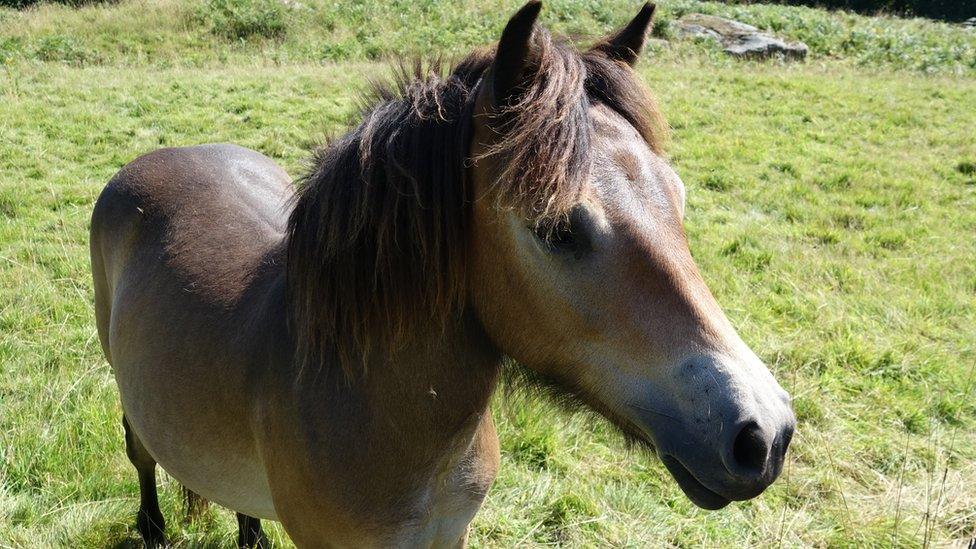
- Published22 May 2023
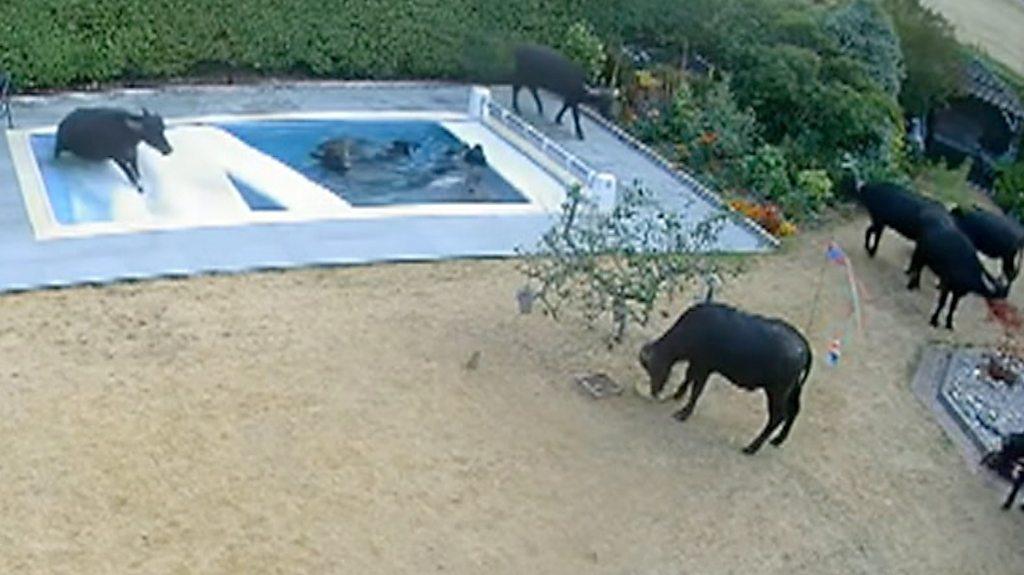
- Published3 December 2020
